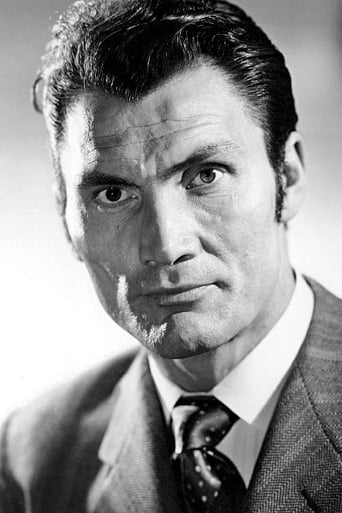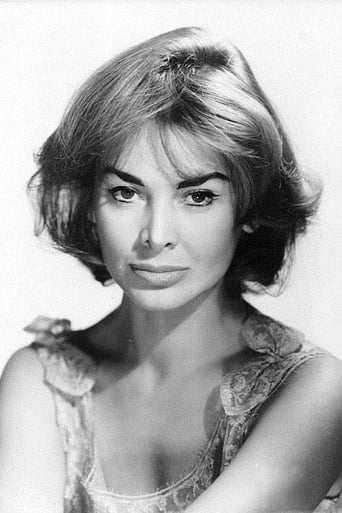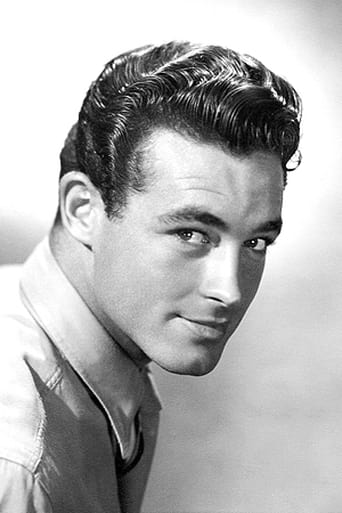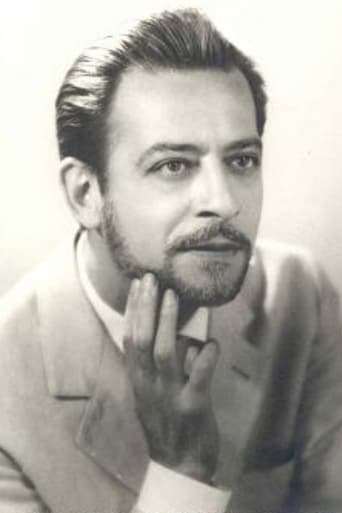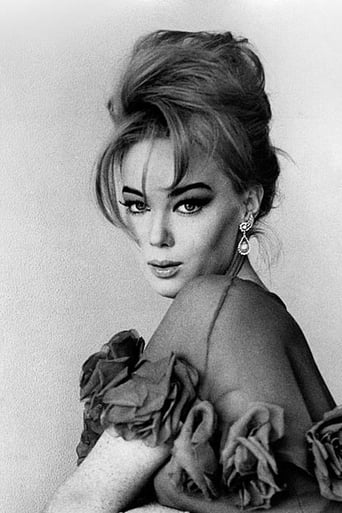Comwayon
A Disappointing Continuation
Teddie Blake
The movie turns out to be a little better than the average. Starting from a romantic formula often seen in the cinema, it ends in the most predictable (and somewhat bland) way.
Lidia Draper
Great example of an old-fashioned, pure-at-heart escapist event movie that doesn't pretend to be anything that it's not and has boat loads of fun being its own ludicrous self.
Skyler
Great movie. Not sure what people expected but I found it highly entertaining.
akkhtimakt
Other reviewers have done a good job in pointing out the virtues and flaws of the film, so I'll not repeat them. However, I will add that this flick stands out above the crowd in its depiction of history. The costuming is not terribly accurate, but the events play out more true to what happened in real life than most films of this kind. Alboin, Rosamund, Amalchi - all were very real. After the Lombards conquered the Gepid kingdom, the real Alboin did kill Rosamund's father, and forced her to marry him. There is even some anecdotal evidence to support the incident of the drinking cup made from Rosamund's father's skull. The scriptwriters ignored the role played by Alboin's Avar allies (who in real life threatened to turn on him and overthrow his victories. He decided to migrate the entire Lombard nation to Italy to avoid that fate) - however, if you look closely, there are even some extras in the background here and there who look more Asiatic, and could be taken for nomadic Avars. ***SPOILER ALERT*** In the end, the real Rosamund and Amalchi did plot to assassinate Alboin and themselves marry. All in all, I appreciated seeing a flick about an obscure footnote in the history books, brought to life with the feral energy only Jack can provide.
MARIO GAUCI
This is definitely superior to the dullish REVAK THE REBEL (1960) but a slightly lesser achievement than THE MONGOLS (1961); both these also star Jack Palance and were made in quick succession. A couple of years ago, a work colleague of mine (a movie-buff who worked as an extra on renowned Malta-shot productions like CLASH OF THE TITANS {1981} and MUNICH {2005}) used to wax lyrically about his VHS of this ultra-rare film being among his most treasured possessions; at the time, I was not even aware of its existence and though I soon learned about Leonard Maltin's unflattering *1/2 rating, I immediately acquired the film when the first opportunity arose (sourced from a gorgeous, high-definition TV print that, nevertheless, suffers from a couple of very minor video glitches)! Still, the fact that its director's resume' (albeit having been active since 1914…and he amazingly made this, his penultimate effort, at 76 years of age!) was pretty unenviable, I went into it with low expectations only to be pleasantly surprised by the results; for the record, I had earlier acquired Campogalliani's swan-song, the even more obscure THE AVENGER OF VENICE (1964), and which I may be able to include in my ongoing Epic marathon.Incidentally, the English title here has no particular relevance to the plot but, then, the original – ROSMUNDA E ALBOINO – does not exactly set the screen on fire either!; those two characters, of course, are the protagonists played by Eleanora Rossi-Drago and Palance respectively. In a neat reversal of the situation in REVAK THE REBEL, it is the latter who offers a truce to the conquered king (Andrea Bosic) – this time around by marrying the man's daughter, even if she already had an illegitimate child by his most loyal lieutenant (Guy Madison)! However, the ruler proves gullible and, led on by his scheming adviser, proceeds to place the blame of their defeat on Madison; the situation deteriorates further when the two allied nations organize a friendly joust. The very first participants are Madison and Palance's younger and war-mongering (both on and offscreen) brother and, when the latter turns up dead regardless, the conqueror reiterates by beheading the king himself (in full view of his own daughter)! Feeling completely ostracized now, Madison has no choice but to flee and try to rally support for his people's cause.Naturally, the doubly begrudged and strong-willed princess initially resists Palance's advances but eventually relents when he gets wind of her offspring's existence (once again, by way of treachery); their relationship is sort of poignant since they gradually come to at least respect one another but, given the characteristically superficial script, this element is largely lost amid the myriad court intrigues and rampant snarling! Anyway, Madison comes upon a peaceful tribe who, in order to join forces with our hero, set him the odd task of going from one side of a valley to the other via a spiked rope laid over an array of wooden stakes! In the end, Madison bursts on the scene just as Palance finally forces himself upon Rossi-Drago: the two men engage in a scuffle and, as their common enemy seems to be getting the upper hand, the woman intervenes to give him the coup-de-grace – which, this being Palance, he turns into a melodramatic showcase; the closing shot, then, presents a conventional greeting of the reunited lovers by an anonymous but over-enthusiastic crowd.
anonymous999-2
If you want to see a sort of 'remake' of this film, albeit in about 6 minutes, go to:http://www.youtube.com/watch?v=i0pF7HlZ9cUwhere the Aunty Jack team over-dubbed it for Australian audiences, around 1971. The plot and name are changed a bit: "Herco the Magnificent", where Herco Barbuto is fighting his evil brother Euripides for the name of their father's fruit shop, Barbuto's Fruitarama. Some great lines: "You reckon Herco can grow a better apple? Well clap your eyes on that!" "Bring on the surfies!" "It's a bone china beer mug!" (Shirl's father's skull) "She must have a gut like a gorilla." As Euripides is stabbed by Shirl: "I've heard of pinning the tail on the donkey, but this is ridiculous." As he falls dead to the floor: "Never could hold his grog."This style of 'remake' pre-dated the work of Double Take by about a decade. Double Take would take a forgettable film and re-dub it in its entirely, live in the cinema. They would draw attention to the gaffes and continuity errors.There is a place for poor (and even awful) films, but it may not be the one that the original makers intended.
ridleyr1
I first saw this movie about 20 years ago, and I recently found a tape of it, so I can now enjoy it whenever I want, although I close the curtains and lock the doors so no one can see me.Judged against other sword and sandal flicks, this is pretty good. The production values are better than average, and the acting and direction at least try. However, in some ways, this is an odd movie. The heroine is in love with Guy Madison's character (Amalchi), and Palance is the ostensible villain (who kills her father and forces her to marry him). But Amalchi is such a whiner, and seems so ineffective, that her love for him is incomprehensible. On the other hand, Alboin (Palance) does do some villainous acts: invading the kingdom, killing the heroine's father, etc. But it's made clear from the very beginning that he and everybody else are being manipulated into war and hatred by the slimy machinations of the king's adviser (who is secretly in the pay of the Byzantine emperor). *****POSSIBLE SPOILER ALERT****** So, at the end of the movie, when the heroine kills Alboin and marries Amalchi, you are left there asking, "Is this really a happy ending?" Alboin came across as a smart, shrewd ruler, and all that Amalchi has going for him is that he knocked up the heroine before the movie started. Not only that, but the Byzantine emperor is still out there scheming to destroy our happy pair, and let's face it, Amalchi is useless. Every time I watch it, I hope that Rozmunda ditches the loser and makes it with Alboin, for a truly happy ending.

